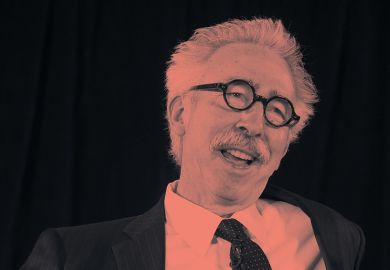News that the Australian government has launched a review of free speech on campus is another reminder of just how fraught the question of who gets to speak at universities has become.
In recent years, we have seen a series of high-profile cases where the presence, absence or “no platforming” of speakers has led to deep dissatisfaction with universities in the anglophone world.
Our capacity to participate in an exchange of ideas is at the core of what we do as institutions. But while it is easy to apply blanket support to the idea of “academic free speech”, it is amply clear that, even in the academy, speech is never without limits.
For instance, we have no obligation to provide a platform to speech that does not open itself to rejoinders by other speech. The chance to rebut arguments with which we disagree is an example of how free speech can check itself, with one person’s speech curbing or contextualising the excesses of another. University of Michigan philosopher Carl Cohen writes that one reason why falsely shouting “fire” in a theatre disqualifies a speaker from protection is that it “permits no discussion” and gives “no opportunity for reasoned reply”. Universities can and should provide such an opportunity, so when speech becomes inimical to reply – through name-calling, for example – it should not be tolerated.
We can also curtail speech that, implicitly or explicitly, endorses or incites violence. Violence represents a failure of speech; as Hannah Arendt wrote, “Violence begins where speech ends.” In this sense, it is a negation of our academic obligation to create respectful, collaborative, diverse and inclusive communities.
A third occasion on which an acceptable limit can be placed on academic speech is when it traffics in well-established falsehoods. It is important to make a distinction here between the promotion of wilfully misleading statements and ideas that are simply tentative or not yet fully formed. Giving a hearing to the latter is not only acceptable, it is core to our project as scholars, constituting the beginning of all scientific enquiry. The former, however, serves no purpose, other than to distort good-faith efforts to find and convey the truth.
This distinction is illustrated by the fight over the teaching of creationism versus evolution in US public schools. Creationists have long maintained that their view should receive “equal time” alongside evolution. Yet evolution has been borne out by generations of scientific analysis, whereas creationism has no scientific basis. Therefore, the two positions are not equivalent, nor should universities be expected to treat them as if they are. This is not because creationism is merely controversial, it is because there is broad agreement that creationism is incorrect. The distinction is an important one – in curating speech, we must make sure that we are not unduly censoring controversial ideas, but are, instead, exercising our prerogative to be careful in granting a platform to ideas that have been shown to be false by scientific consensus. I recognise that this is a difficult line to draw; ideas that today we think are wrong may turn out to be right tomorrow, so some humility about what we think we know is called for in applying this principle.
The most difficult cases involving the restriction of free speech are those cases in which it impossible to separate ideas from those who espouse them – and when those people have committed misdeeds that therefore overshadow the message, making it hard for the academic community to engage with it. The challenge is to identify a threshold for when this is the case.
We have in recent years seen appropriate anger directed at those accused of sexual misconduct in academia, and their consequent disinvitation from academic fora. There is little question that the behaviour of which many are accused is unacceptable; what is harder to judge is whether such behaviour in a personal domain should disqualify someone from presenting unrelated ideas in an academic context. It seems clear that the threshold for barring speech on these grounds should be high. Even political figures who have been responsible for crimes against humanity may, over time, have acquired helpful perspective on their misdeeds. But it is unrealistic to suggest that we can overlook the messenger entirely.
It ultimately falls to the relevant institutional leaders – university presidents, or deans within specific schools – to make judgements on these issues, consulting widely if appropriate. Universities derive value from their ability to engage with complex, competing ideas, especially during periods when this engagement is rarely reflected in the national debate. So the overriding principle must be that any limit on the academic conversation should be imposed only to ensure the quality of this engagement.
I have no idea what the Australian review will conclude. But, for my part, I dare to hope that greater reflection and clarity about the conditions under which speech can legitimately be curtailed may help to build a world where such limits are no longer necessary – and in which the academic conversation serves to uplift, not undermine, the free exchange of ideas.
Sandro Galea is Robert A. Knox professor and dean at the Boston University School of Public Health.
POSTSCRIPT:
Print headline: Even at university, speech can never be completely free
Register to continue
Why register?
- Registration is free and only takes a moment
- Once registered, you can read 3 articles a month
- Sign up for our newsletter
Subscribe
Or subscribe for unlimited access to:
- Unlimited access to news, views, insights & reviews
- Digital editions
- Digital access to THE’s university and college rankings analysis
Already registered or a current subscriber?








